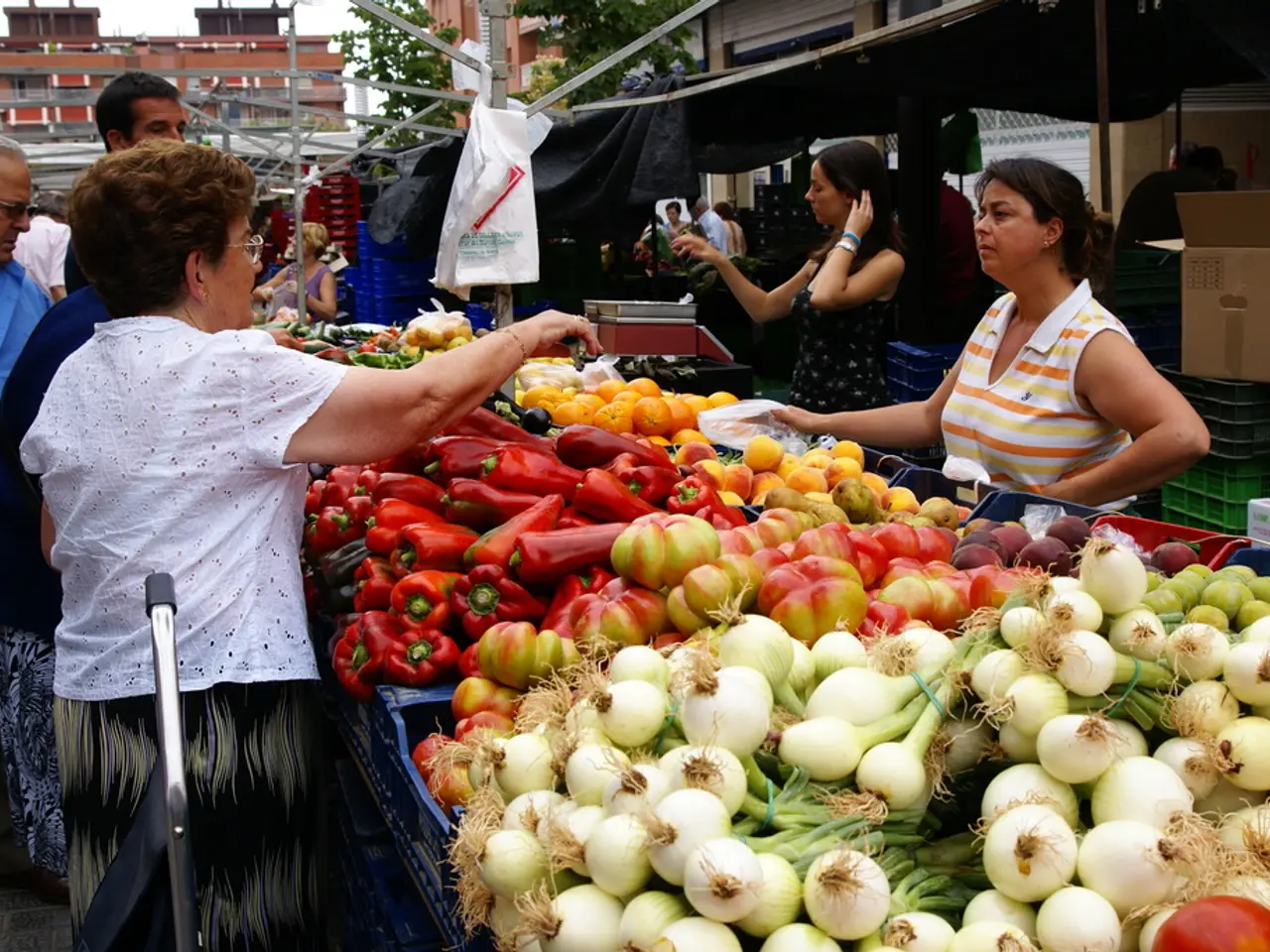Revitalize Your Veggies and Herbs at Home During Quarantine!
During these unprecedented times, many people are finding solace and productivity in activities that bring a sense of normalcy to their lives. One such activity that has gained popularity is home gardening, particularly the art of regrowing vegetables and herbs from kitchen scraps. Here's a step-by-step guide to help you get started on this rewarding and beneficial hobby.
## Starting Your Home Garden
1. **Plan and Prepare the Space**: Choose a spot in your home or backyard that receives at least 6 hours of sunlight daily. Ensure the area is debris-free and prepared for gardening.
2. **Composting with Kitchen Scraps**: Collect scraps like vegetable peels, fruit rinds, and tea bags to create a compost pile. Use a designated bin or a corner of your garden for composting. Add a mix of green (food scraps) and brown materials (dried leaves or paper) to maintain a healthy compost. Regularly turn the pile to ensure it decomposes evenly and remains odor-free.
3. **Utilize Compost for Gardening**: Once your compost is ready, mix it with potting soil to create a nutrient-rich garden bed. Use this compost-enriched soil in pots or garden beds.
4. **Grow Plants from Scraps**: Use scraps like carrot tops, celery ends, and green onions to regrow new plants. Plant seeds from fruits and vegetables you've used in cooking.
5. **Engage the Family**: Involve children in gardening activities, teaching them about the lifecycle of plants and sustainable living. Gardening activities like digging and planting provide physical exercise for all family members.
6. **Monitor and Enjoy Your Harvest**: Regularly water and maintain your garden. Harvest fresh fruits and vegetables from your garden, enjoying the satisfaction of growing your own food. Gardening can be therapeutic, providing a calming and fulfilling experience.
## Tips for Success
- Start small, with a few easy-to-grow plants like tomatoes or herbs. - Be consistent in regularly tending to your garden to ensure it thrives. - Learn and adapt your techniques as needed, researching and learning from your experiences.
## Benefits of Gardening with Kitchen Scraps
- **Physical Exercise**: Gardening activities like digging and planting provide physical exercise. - **Learning Opportunity for Kids**: Engage children in gardening to teach them about sustainability and the lifecycle of plants. - **Fresh Produce**: Enjoy fresh fruits and vegetables grown right in your home. - **Stress Relief**: Gardening can be therapeutic, offering a calming and fulfilling experience.
By following these steps and tips, you can create a thriving home garden using kitchen scraps, enjoying the benefits of physical activity, family engagement, and stress relief during quarantine.
Some popular plants to regrow include garlic, chili peppers, mint, bell peppers, coriander (cilantro), and many more. Organic soil is recommended for better growth and healthier plants, and proper drainage is essential for containers used in home gardening to prevent waterlogging of roots.
Home gardening during quarantine is a fun, rewarding, and cost-effective activity that helps stay productive and calm. Whether you have a spacious backyard or a small balcony, windowsill, or kitchen counter, small-scale gardening is possible and can bring a touch of green and serenity to your living space.
- Choose a spot in your home or backyard for your garden that receives at least 6 hours of sunlight daily, ensuring the area is debris-free and prepared for gardening.
- Create a compost pile using kitchen scraps like vegetable peels, fruit rinds, and tea bags, and maintain it by adding a mix of green and brown materials, turning the pile regularly, and keeping it odor-free.
- Utilize your compost to enrich your potting soil, creating a nutrient-rich garden bed for your plants.
- Regrow new plants using kitchen scraps like carrot tops, celery ends, and green onions, or plant seeds from fruits and vegetables you've used in cooking.
- Involve children in gardening activities to teach them about the lifecycle of plants, sustainable living, and provide them with physical exercise.
- Monitor and enjoy your garden's progress by regularly watering and maintaining the plants, and harvest fresh fruits and vegetables as they ripen, gaining satisfaction from growing your own food.
- Start small with easy-to-grow plants like tomatoes or herbs, be consistent in tending to your garden, and learn and adapt your techniques as needed for a thriving home garden, whether you have a spacious backyard, a small balcony, or just a windowsill or kitchen counter.




